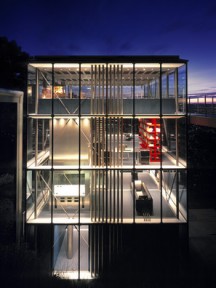 The process of intimacy is tied to the uniqueness of how each of us experiences the world. Our public knowledge is not able to encompass the physicality of living, and the differences of our experience within our bodies. Our brainwaves, a physical expression of the continuous flow and transformation of experiences that we all inhabit, they are as unique as our finger-prints. Ironically enough, this is something we all share. We all feel, encounter and experience the world in different ways, yet we describe and share those experiences through the glass-house of public knowledge and language.
The process of intimacy is tied to the uniqueness of how each of us experiences the world. Our public knowledge is not able to encompass the physicality of living, and the differences of our experience within our bodies. Our brainwaves, a physical expression of the continuous flow and transformation of experiences that we all inhabit, they are as unique as our finger-prints. Ironically enough, this is something we all share. We all feel, encounter and experience the world in different ways, yet we describe and share those experiences through the glass-house of public knowledge and language.
We all sometimes feel that frustration of trying to express exactly how we are experiencing something, only to find that words fail us, that their consensus basis can only go so far. Even in our most intimate conversations, as we try and get closer to how we encounter the world, to try and make it transparent to ourselves and to another, we are always left slightly unsatisfied. Having expressed, shared and felt the warmth of communing, knowing that we have not fully connected, that some part of ourselves has not been revealed, that some connection remains unmade.
And this is partly due to the drive for confession. That need to reveal, to try and bring language into our deepest inner recesses. As if by doing so we let the eyes of God into our soul. Yet all we are doing is trying to put our dynamic, pulsing, living self into the stillness of words. Trying to immortalise ourselves in a linguistic mausoleum, just for a moment. It is not like there is some easy answer to this, but it is a reflection of our current situation, where value is derived from “information” and “ownership” that we forget how much of our shared understandings come from the synchronisation of bodies and minds in motion.
Why do men love sport so much? Why the sense of communing and oneness from what seems like a pointless, mostly non-violent re-enaction of war or hunting? It is easy to see why, where else can men enjoy the shared emotions that come from shared motion? Often women seem to find this easier to enjoy, they are often more happy to dance together, and their own physical rhythms, their periods, will synchronise with shared living. But for men, activities such as sport and shared physical work are the only social space where shared motion can easily and publicly become shared emotion.
It is in those moments that the inherent differences that bodies bring, the differing streams of consciousness that each of us has, can be brought together in the shared physicality of motion and action, of shared movement and intention, of experience fleetingly converging. This is of course as incomplete as any confession, and yet the fact that it is based in motion prevents us from assuming we are building a fixed self, and to rather learn from the becoming that motion to emotion entails. And somehow we instinctively understand that this is where intimacy lies, that even in our confessions we are seeking the becoming rather than just the being.
But why the fixed self, tied to the word, who gives birth to this? One can only speculate, but is it coincidental that the birth of the city, and the birth of agriculture came together and gave rise to the birth of ownership? Agriculture was the only means to support large static concentrated populations, and this entailed fixed ownership of land. At the same time in these early cities in what is now central Asia, women came to be represented as cattle, often on all fours, and thence came the wording of the English marriage contract, where the woman’s self is fixed as “chattel”. And if being owned is a fixed role, an absolute determination of ones being, then is not owning also, as the converse of such an absolute relation, also bound to fix one in one’s place? And how were such relationships recorded? There came the word and writing, also a product of these early cities and the birth of record-keeping, of ownership and then statistics, which has now grown into the world of information we now inhabit.
And we wonder why our huge glass palace of information has no room for human being-and-becoming. Academics scratch their heads over why people do not conform to fixed ideas, even as our economic engine seems to have a life of its own. But there is no mystery, just as money is an invention so is our glass palace, and we will never find ourselves, one another, only within it. Our collectivity springs from material and bodily motion, and emotion, giving our world form, which we keep giving words to.





